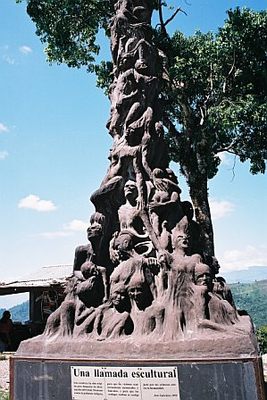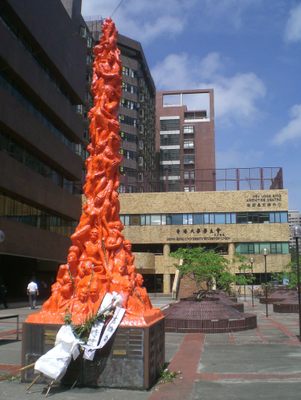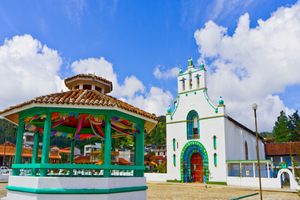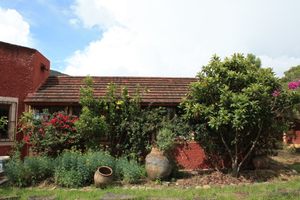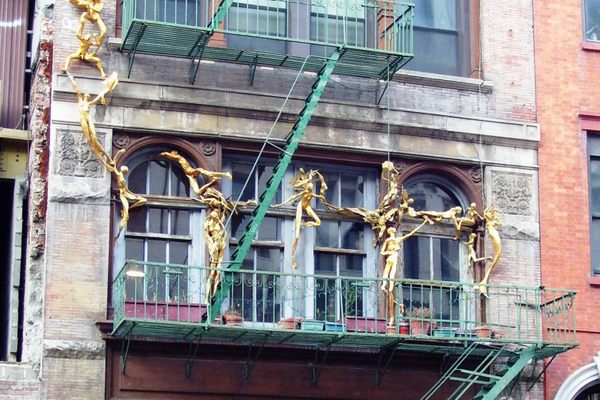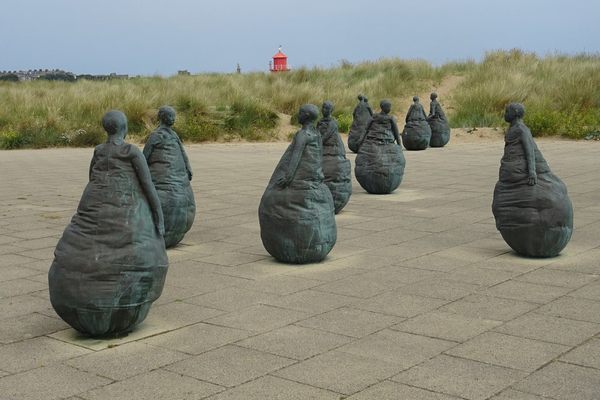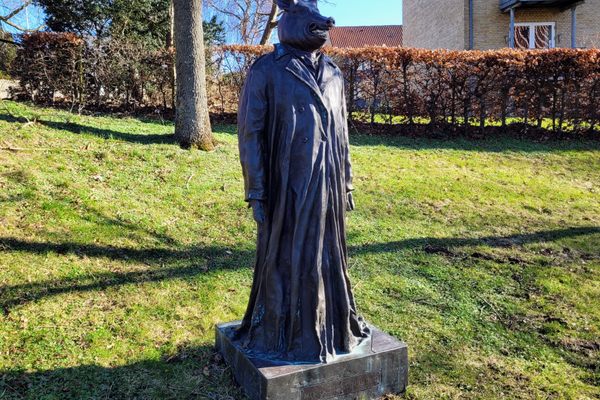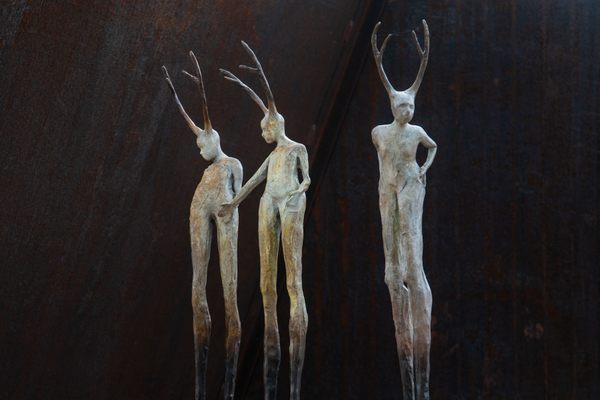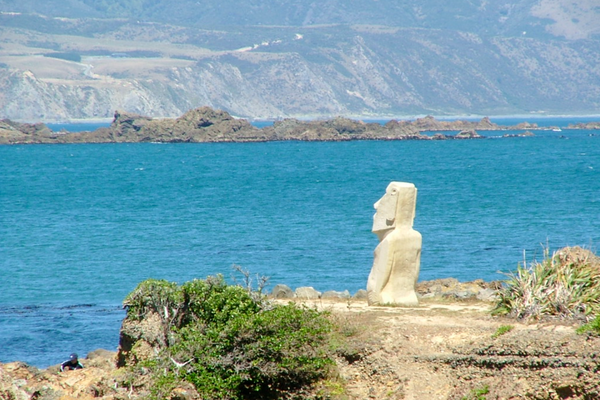About
The "Pillar of Shame" is a project by Danish artist Jens Galschiøt, consisting of a series of sculptures, all representing human faces and extremities contorted in states of agony and fused into 8-meter tall pillars. They're installed in places that have borne witness to actual massacres or tragedies, and are meant to symbolize humanity's shame at these events.
So far, four have been installed: one in Rome, addressing the deadliness of global food insecurity ahead of 1996’s U.N. Food and Agricultural Organization summit; another on the University of Hong Kong Campus, to commemorate student victims of the Tiananmen Square Massacre; one in Brasilia, in homage to the victims of the Eldorado dos Carajás massacre; and one here in Acteal, a small village in the Mexican state of Chiapas.
The 45 victims were members of Las Abejas (The Bees), a group of indigenous Tzotzil Maya ancestry who follow Catholic doctrine and align ideologically with Zapatistas. Members of Las Abejas were massacred by a paramilitary group in the church of Acteal on December 22nd, 1997. While independent from the Mexican government, the perpetrators—known as Máscara Roja (Red Mask)— received training and support from the Mexican military and other institutions. Local officials were later found to have tacitly approved the slaughter and even tampered with the crime scene.
Prosecution against the perpetrators is ongoing, with controversy surrounding the culpability of those imprisoned as well as those still not brought to justice. The Mexican government denied any responsibility for the massacre until 2020.
After being unveiled in Mexico City, this Pillar of Shame was moved to a roadside pull-off in Acteal, where it can still be found today. The small clearing offers views that look out onto the sprawling Chiapan mountain-scape, abutted by a hand-painted board outlining the events of December 22nd. Galschiøt has continued his work since, saying in one interview, “all these marked incidents are connected [by] the decision to use violence, to wipe out people in order to reach an aim.”
Related Tags
Yucatan Family Adventure: Meteors, Pyramids & Maya Legends
Explore Maya temples and learn about the asteroid that wiped out the dinosaurs.
Book NowCommunity Contributors
Added By
Published
March 4, 2022
Sources
- https://alchetron.com/Pillar-of-Shame
- https://www.nytimes.com/2007/12/23/world/americas/23acteal.html
- https://nacla.org/news/2020/12/21/23-years-impunity-acteal-massacre
- https://galschiot.com/en/work/pillar-of-shame/
- https://www.equaltimes.org/in-mexico-there-is-no-pandemic-for#:~:text=In%20September%202020%2C%20the%20federal,measures%20to%20prevent%20the%20murders.
